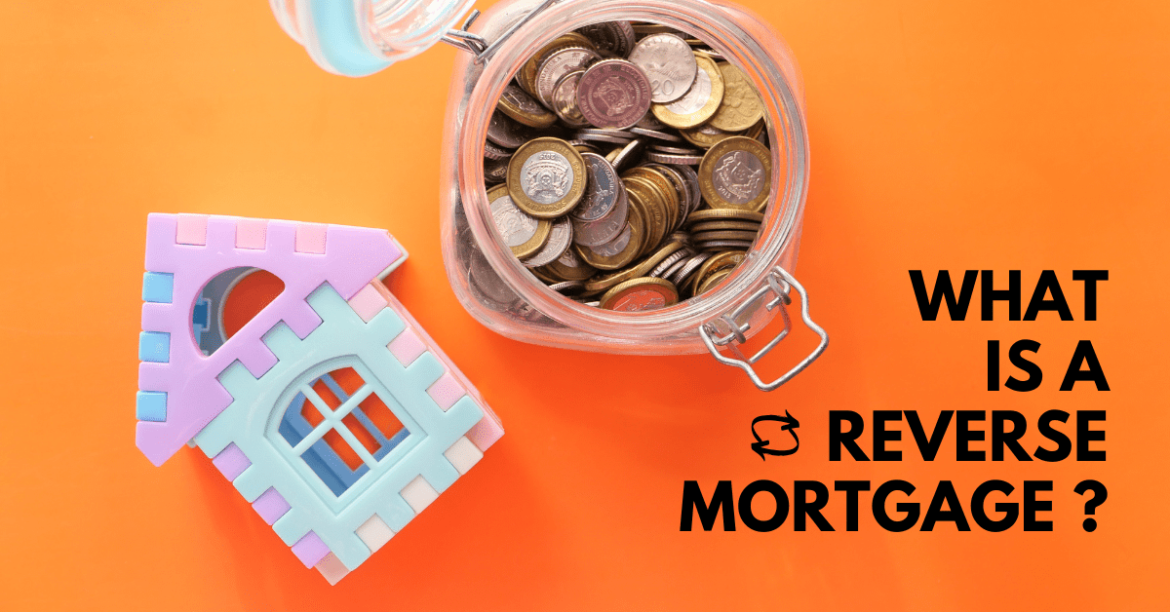Article Contents
Reverse mortgages have become a progressively popular financial arrangement for seniors seeking to unlock home equity and reap the benefits of home ownership! Let us get an overview of a reverse mortgage, how it works, and the pros and cons for seniors considering this option.
We will also discuss repayment options and other financial benefits for seniors and offer some invaluable insights to help you make an informed decision.
What is a reverse mortgage?
A reverse mortgage is a loan explicitly created for homeowners who are 62 years of age and older that allows them to turn a portion of their home equity into cash or earnings. This financial arrangement provides older adults over a certain period a way to tap into their home’s value without having to sell it.
Unlike traditional mortgages, with a reverse mortgage, homeowners receive payments from the lender that allows them to supplement their income, cover expenses, or provide funds for other financial needs.
How does a reverse mortgage work?
It is a very straightforward concept. With a reverse mortgage, homeowners at least 62 years old can convert part of their home equity into loan proceeds. Instead of making mortgage payments on a monthly basis, the loan is repaid when the homeowner moves out, sells the home, or passes away.
It is essential to know that the loan balance rises over time as interest accrues on the outstanding amount and that the homeowner also retains ownership of the home.
Reverse mortgage pros and cons for seniors
As with any financial processes or tools that can help seniors gain leverage over their assets and security over a fruitful retirement, reverse mortgages come with their own benefits and disadvantages.
Here are the pros and cons of utilizing a reverse mortgage for senior homeowners.
Pros of a reverse mortgage
1. Supplement retirement income: A reverse mortgage can provide seniors with supplementary or additional income, helping them meet living expenses and maintain a comfortable lifestyle during retirement. The better the extra income, the better the retirement atmosphere seniors can enjoy.
2. Flexibility in payment options: One of the main benefits of a reverse mortgage is that seniors can choose the payment option that best suits their needs be it a lump sum for a specific goal, regular monthly payments, or a line of credit for future use.
3. No monthly mortgage payments: Unlike traditional mortgages, reverse mortgages do not require monthly repayments. Rever mortgage payments are only due when the homeowner no longer lives in the home as their primary residence.
Cons of a reverse mortgage
1. Accrued interest: The loan balance increases over time due to accumulating interest, potentially reducing the equity available to heirs or when the home is sold.
2. Upfront costs: One problem with reverse mortgages is that it has upfront costs that include origination fees, closing costs, and mortgage insurance premiums, which can heavily impact the total amount borrowed.
3. Impact on inheritance: Taking a reverse mortgage out of the picture when may reduce the value of the estate and the inheritance that can be passed on to heirs (if the homeowner passes away).
 Is a reverse mortgage a good idea?
Is a reverse mortgage a good idea?
Whether a reverse mortgage is a good idea depends on the situation and individual circumstances. It is essential to consider factors such as current and future financial needs, long-term plans for the home, and alternative options for accessing funds.
We suggest seeking guidance from a reputable reverse mortgage counselor and financial advisor who can assess the suitability of a reverse mortgage for your specific situation.
How do you pay back a reverse mortgage?
To explain most straightforwardly, the reverse mortgage is repaid when the homeowner no longer lives in the home as their primary residence, sells the house, or passes away. The loan is typically repaid through the home’s sale, with the remaining equity going to the homeowner or their heirs.
It’s important to note that the loan amount cannot exceed the home’s assessed value during the time of repayment.
Other financial benefits for seniors
In addition, to reverse mortgages, seniors can explore other financial benefits, including:
1. Social Security benefits
Seniors may be eligible for Social Security benefits, also known as OASDI (Old Age Survivor’s and Disability Insurance), providing a steady source of income during retirement, especially in assisted living or nursing homes.
2. Medicare and Medicaid
Medicare and Medicaid are other financial benefits that older adults can enroll in and take advantage of. Medicare offers seniors healthcare coverage, while Medicaid assists low-income individuals with medical expenses.
3. Veteran’s benefits
There are many benefits for veterans regarding healthcare in the US. Veterans may be eligible for various uses and programs, including healthcare, pensions, and home loans. Even veterans who are in home care can take advantage of PHC programs to meet their unique requirements.
There are numerous paths to securing a financial benefit for yourself and your family. Setting yourself up for the golden years is always a wise move, and there is always time to start.
Why not read the following articles to understand more?
Final thoughts
Reverse mortgages can be one of the best practical alternatives for seniors seeking to tap into their home equity. By entirely understanding the pros, cons, process, and implications of a reverse mortgage, seniors can make informed decisions that align with their financial goals and overall well-being.
If you are interested in other forms of financial knowledge that can help you secure a path to a golden retirement, then read the articles below:
FAQs
What is one disadvantage of a reverse mortgage?
One of the significant disadvantages of a reverse mortgage is that the loan balance will increase over time due to the increasing interest rate. This can lead to reduced equity available to heirs or when the home is sold.
How does a reverse mortgage get paid back?
Reverse mortgages are naturally paid back when the homeowner no longer lives in the home as their primary residence, sells the house, or passes away. The loan is repaid through the home’s sale, with the remaining equity going to the homeowner or the respective heirs.
How to get out of a reverse mortgage?
To get out of a reverse mortgage, homeowners can try the following:
1. Repay the loan balance using personal funds.
2. Seniors can sell the property to repay the reverse mortgage loan.
3. Use Your Right of Rescission, which has a 3-day to cancel the loan.
4. Refinance with a traditional mortgage.
5. Take out a new loan and make adjustments.
6. Allow foreclosure and balance out the amounts yourself (as a last resort).
What happens if you don’t pay back a reverse mortgage?
If a reverse mortgage is or cannot be paid back, the lender will implement foreclosure proceedings. However, the mortgagor or their heirs can still sell the home and use the proceeds to repay the loan balance.
What is the purpose of a reverse mortgage?
The purpose of a reverse mortgage is to provide seniors over 62 with a financial tool to supplement an additional income during retirement. A reverse mortgage can help older adults or retirees meet their financial needs. It allows homeowners to convert a share of their home equity into cash without needing periodic mortgage payments.

